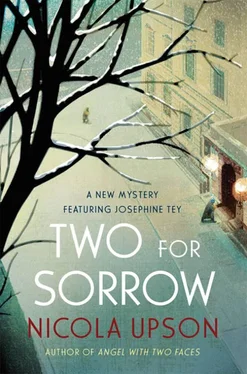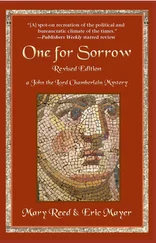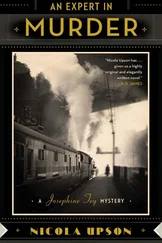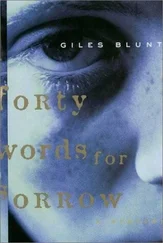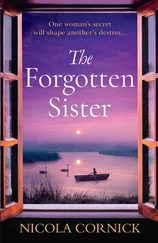‘I told you to think about yourself.’ He threw his cigarette stub on the ground and stood up. ‘Not me. Not Lydia. Not even your family. Just you.’
Chapter Sixteen
Josephine walked slowly up the hill to Crown Cottage with the latest Film Weekly tucked under her arm. Inverness was grey and quiet and misty in the late morning, and the weather seemed to have settled on a compromise, halfway between the absurdly March-like sun which had lit the Grampians on her journey south and the snow which had turned them white to their roots by the time she travelled home. But if nature had righted itself to usher in December, her world remained strangely at odds with itself. She glanced down towards the railway station, with the bleak, dark mass of Ben Wyvis in the background, and watched as the Edinburgh train pulled lazily out into the countryside; just a fortnight ago, she would have considered the sight of a train headed for London as a lifeline; now, she was not so sure.
‘You’re popular today,’ called a cheerful voice from across the road.
Josephine waved to the post girl, but her heart sank as she envisaged a pile of bills, begging letters and catalogues. The mail was always so dull after a trip away, and it was only a matter of days now, surely, before the first Christmas card dropped smugly on to the mat. ‘Couldn’t you just tell them I’ve moved, Jenny?’ she asked drily. ‘How bad is it?’
‘Eight letters and a parcel. I’ve left them in the porch for you.’
Josephine thanked her and climbed the narrow set of steps which led directly to the back of the house, saving her the bother of greeting her neighbours as she went down the drive. What could the parcel be, she wondered? Something back from the laundry, perhaps, although she couldn’t immediately remember sending anything to the laundry. When she picked it up and saw the label of an Oxford Street bookshop, she smiled and looked for the explanatory letter; there it was, in Marta’s handwriting; in fact, two of the envelopes were from Marta.
She barely had a chance to close the front door behind her before her maid emerged from the kitchen, clutching a wet towel. ‘Miss Tey—thank goodness you’re back. The sitting-room grate’s fallen out and now we’ve got a leak under the kitchen sink. I’ve mopped it up as best I can, but the whole place will be flooded if it’s not fixed this afternoon.’
How quickly reality came crashing back in, Josephine thought, listening to the catalogue of domestic disasters that seemed to have befallen Crown Cottage in the space of an hour and a half. She took one look at the girl’s worried face, and knew that she just wanted to be on her own. Putting the mail down on the hall table, she took the towel from her gently and led her back to the kitchen. ‘Why don’t you take the rest of the day off, Morag. You’ve had a lot to deal with while I’ve been away, and you deserve some time to yourself.’
Morag looked at her in astonishment. ‘But I haven’t even started your unpacking yet.’
‘I’ll take care of it later,’ Josephine said firmly. ‘Go and do some Christmas shopping or something.’
‘But what about the leak?’
Just in time, she stopped herself saying something about the leak that Ronnie would have been proud of. ‘Stick a bucket under it before you go, and I’ll make sure it’s dealt with.’ She helped Morag on with her coat. ‘Were there any messages while I was out?’
‘Your sister telephoned. She and Mr Donald are coming up on Thursday instead of Friday next week. And your father won’t be in for supper—he said to go ahead and eat without him.’
Josephine breathed a sigh of relief as Morag’s footsteps faded down the drive, and tried to remember the last time she had had the house to herself for eight glorious hours. The rooms were still fragrant with Marta’s flowers; the scent had followed her to Inverness from London, filling the sleeper and reminding her—if she needed reminding—that whatever she was running from was not so easily shaken off. She picked the post up, walked through to the tiny sitting room at the back of the house where the grate was still intact, and settled down with her feet on the hearth to look through her mail. The book was a copy of Wuthering Heights , a beautiful leather edition with gilt lettering, its pages yet to be cut; Marta had looked at her in disbelief when she said she hadn’t read it, almost as if it were a personal affront, and Josephine knew that it would only be a matter of time before the novel found its way to Inverness. With apologies to Emily Brontë, she put the book aside and turned to Marta’s letters. One envelope contained some more pages from the diary, which Marta had promised to continue to send her; the other, a short note.
You left me no time to give this to you in person, so I throw myself upon the mercy of His Majesty’s post and hope that it slips through those hallowed defences at Crown Cottage, even if I can’t. It seems that we’re destined to spend our lives at railway stations, you and I, and hurried departures are becoming a habit. Once again, you’ve blighted my life by going out of it, but tonight, somehow, Inverness feels closer than it used to.
Lydia tells me that she’s writing to suggest you join us at Tagley for Christmas. It will be amusing to see whether you accept or refuse. In your place, I should wickedly accept for the fun of seeing what the other fellow would do, but perhaps your Scottish code doesn’t allow that? Stop being so glib, I hear you say—but Josephine, sometimes it’s the only way. Don’t ever be fooled by it; don’t doubt that I love you.
That, at least, was no longer in question: Josephine had known it from the moment that Marta first touched her, had felt the truth of it in every hour they spent together, and she was ashamed to remember how easily she had dismissed Marta’s feelings as something less than real. And if the looker-on in her still insisted that there was no sense in loving someone you couldn’t be with, there was, for the first time in her life, another voice which accepted that the loving itself was not a matter of choice.
She glanced through the rest of the mail—sure enough, there was the card from Lydia—and put it down to open later. There was something she needed to do first, something for Gerry which she would have found impossible when they had talked that morning at breakfast. Consciously or not, she had underestimated Gerry’s love for Lizzie Sach, too, and had written it off as some sort of adolescent passion which would have passed with time, but she realised now that it was her imagination which had been lacking, not Gerry’s feelings. Determined to make it up to her, she settled down at her typewriter to lay the Sach and Walters case to rest once and for all. The final chapter would only ever be read by one person; even so, it was the one that mattered most.
(untitled)
by Josephine Tey
First Draft
Anstey Physical Training College, Birmingham, Wednesday 14 June 1916
Lizzie knocked loudly on the door of Celia Bannerman’s office and went straight in without waiting for a reply. Miss Bannerman was at her desk, and made no acknowledgement of any interruption until she had finished the letter she was writing. The arrogance of her unhurried progress across the page sickened Lizzie, and she could barely contain her anger; eventually, the teacher looked up at her and smiled.
‘Miss Price—what can I do for you at this time of night?’
‘Don’t you mean Miss Sach?’ Lizzie was gratified to see that her words had temporarily ruffled Bannerman’s composure, and she pressed home her advantage by throwing the letter down on the desk in front of her—Gerry’s letter, which she had waited all day to open, holding on to it as some sort of salvation from the misery of her daily life, only to find that its contents destroyed the very fabric of her existence. She waited impatiently while Bannerman read it through, taking her time and going back over some of the earlier paragraphs, and wondered how she could ever have trusted or respected the woman in front of her.
Читать дальше
